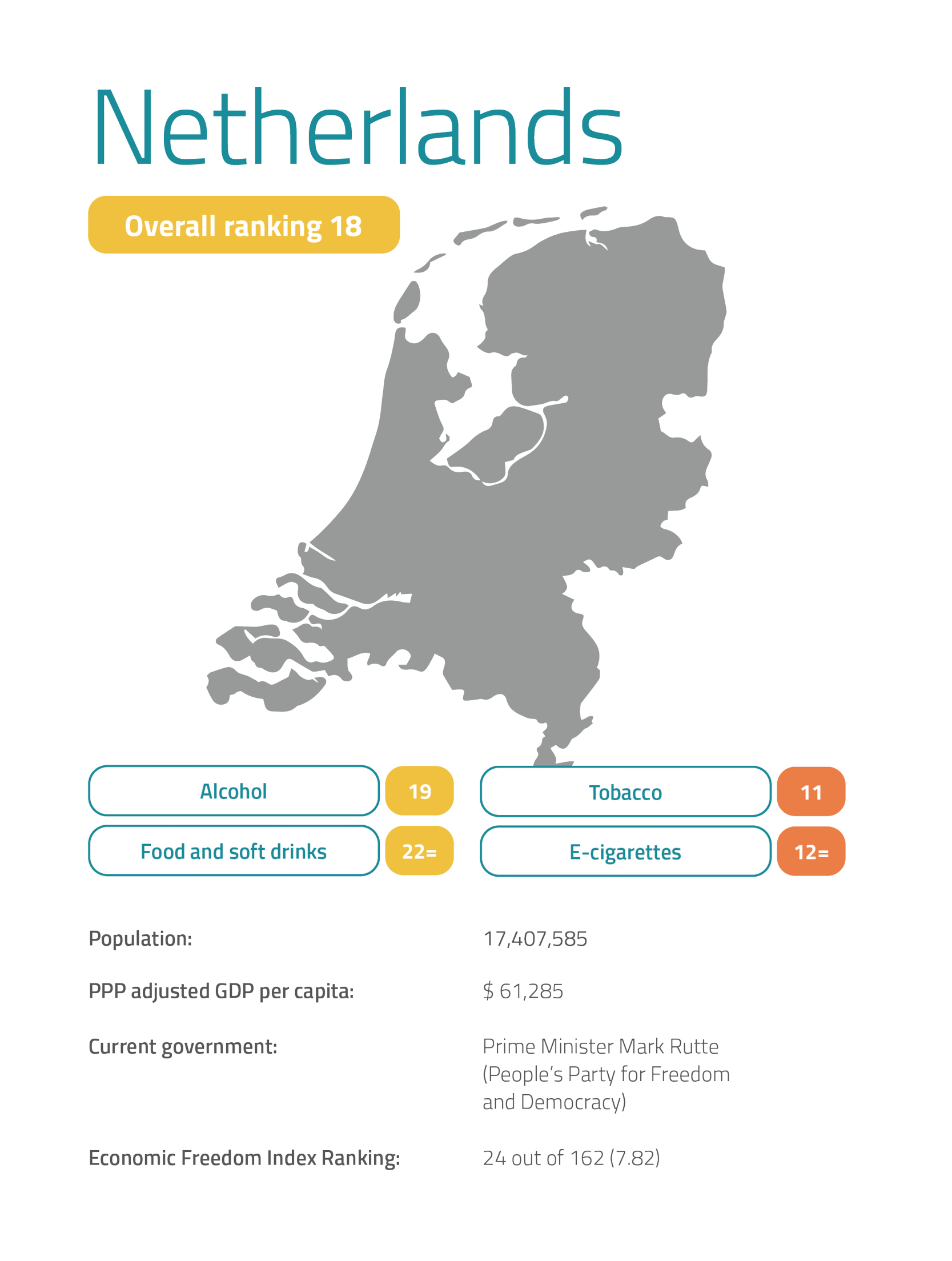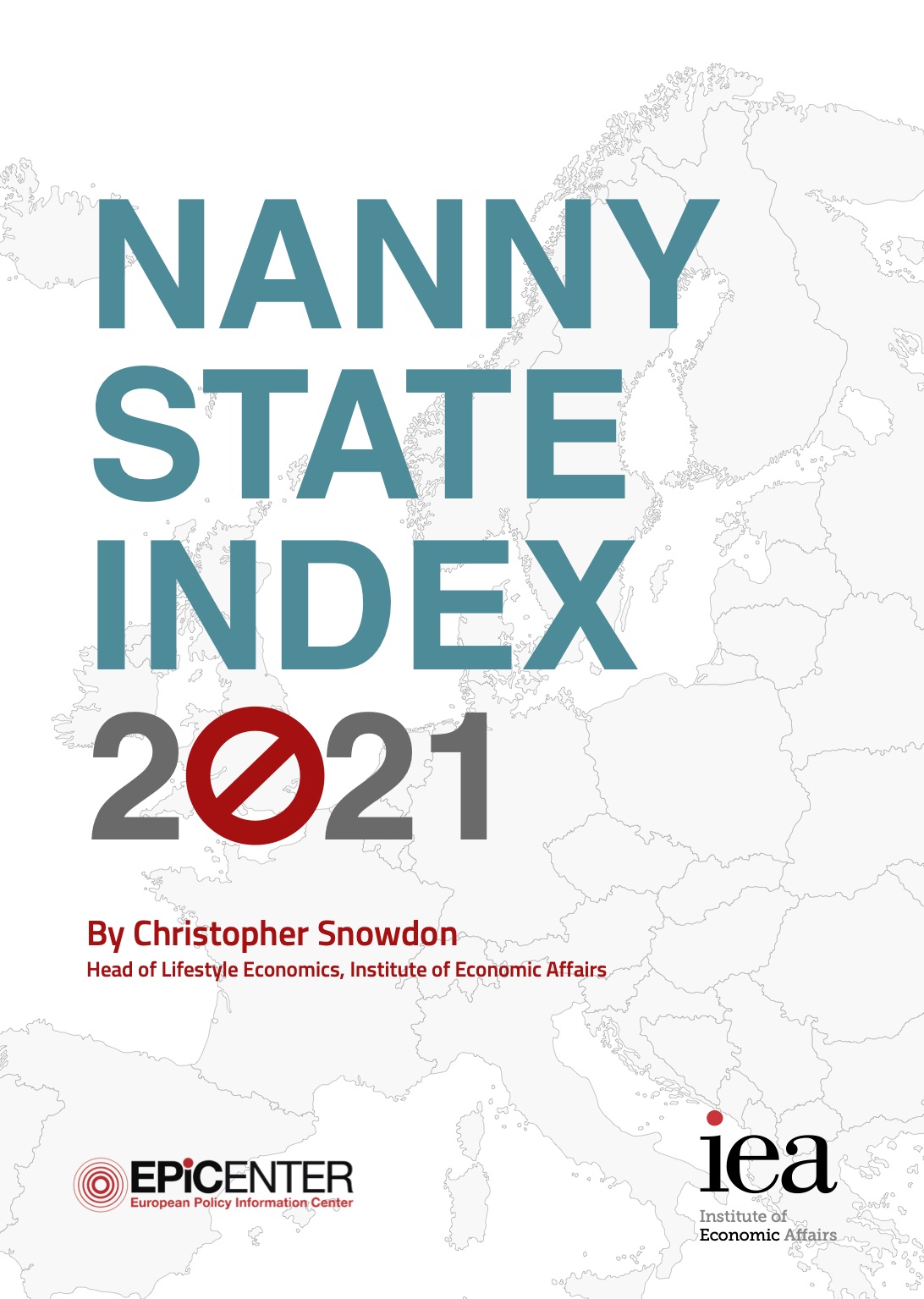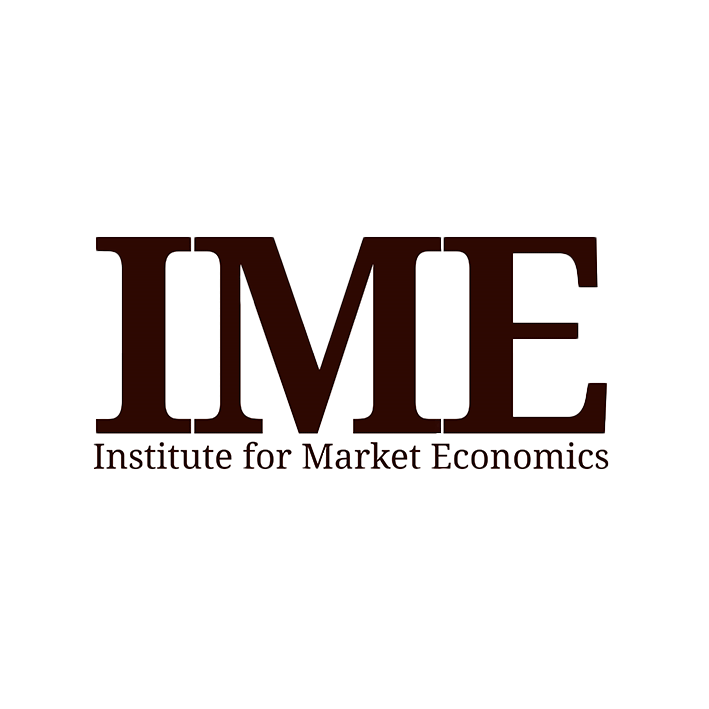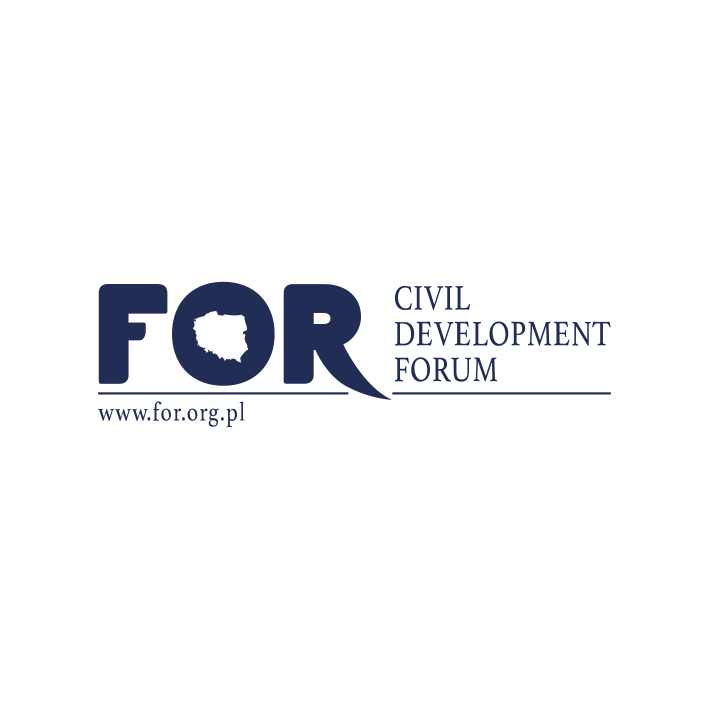
The Netherlands has jumped from the bottom end of the table to the middle since 2016. Unfortunately it looks set to rise further. Its reputation as one of the world’s most liberal countries could soon be behind it.
The Christian Union, a socially conservative political party, found itself in government after the 2017 election despite coming eighth with 3.4 per cent of the vote. Although it only won five of the 150 seats in parliament, it joined the governing coalition on the condition that one of its members, Paul Blokhuis, be made State Secretary for Health. Blokhuis then introduced his ‘National Prevention Agreement’ with a raft of nanny state measures, including plain packaging and a display ban for tobacco, both of which came into force in 2020. Blokhuis also wanted to introduce minimum pricing for alcohol, but that was rejected by parliament.
The tobacco (and e-cigarette) display ban was introduced to supermarkets in July 2020 and extended to all shops in January 2021 (specialist tobacconists are exempt). Supermarkets will be banned from selling cigarettes altogether from 2024. Cigarette and e-cigarette vending machines will be banned from 1 January 2022. Online sales of tobacco and vape products will be banned from 2023.
The Netherlands had already moved towards plain packaging in 2017 with an unusual law banning ‘holograms, sparkles, shiny and glamorous colours, embossing or expressions referring to a specific theme’ on cigarette packs. E-cigarette packaging can now no longer show logos, symbols and other recognisable feature and plain packaging for cigarettes began on 1 October 2020. For other products, including cigars and electronic cigarettes, plain packaging will be required from 1 January 2022.
Alcohol advertising can only be broadcast after 9 pm. A ban on e-cigarette advertising was overturned in 2012, but reintroduced in 2020. There is no vape tax, but a ban on e-cigarette flavours is planned for 2021 or 2022.
A ban on smoking was introduced in 2008 but was overturned for small bars in 2010 before being reintroduced in 2014. This left smoking banned in the vast majority of indoor venues, although there was an exemption for marijuana. Smoking rooms are still permitted for employees, but not in restaurants, bars and cafés. Marijuana is still exempt and smoking rooms in all workplaces will be banned in 2023. Fines range from €450 to €4,500. Vaping was added to the ban in July 2020 “to set a good example for young people”, according to Blokhuis, who also wants to ban smoking on terraces.
Taxes on alcohol and cigarettes are average by EU standards for the time being, and the rate of beer duty is relatively low. Heated tobacco is taxed at €160.91/kg, one of the highest rates in Europe.
The Dutch government has been gradually lowering the legal limit of salt in bread. The initial limit was 2.5 grams of salt per 100 grams of bread in 2009. The current limit is 1.8 grams. Perhaps surprisingly, Mr Blokhuis said no to a sugar tax in September 2020.
With thanks to Fleur de Beaufort at TeldersStichting
About
The Nanny State Index (NSI) is a league table of the worst places in Europe to eat, drink, smoke and vape. The initiative was launched in March 2016 and was a media hit right across Europe. It is masterminded and led by IEA’s Christopher Snowdon with partners from all over Europe.
Enquiries: info@epicenternetwork.eu
Download Publication

Previous version: 2019
Categories
About the Editor
Christopher Snowdon is the head of Lifestyle Economics at the Institute of Economic Affairs. His research focuses on lifestyle freedoms, prohibition and policy-based evidence. He is a regular contributor to the Spectator, Telegraph and Spiked and often appears on TV and radio discussing social and economic issues.
Snowdon’s work encompasses a diverse range of topics including ‘sin taxes’, state funding of charities, happiness economics, ‘public health’ regulation, gambling and the black market. Recent publications include ‘Drinking, Fast and Slow’, ‘The Proof of the Pudding: Denmark’s Fat Tax Fiasco’, ‘A Safer Bet’, and ‘You Had One Job’. He is also the author of ‘Killjoys’ (2017), ‘Selfishness, Greed and Capitalism’ (2015), ‘The Art of Suppression’ (2011), ‘The Spirit Level Delusion’ (2010), ‘Velvet Glove, Iron Fist’ (2009).
Netherlands 2021

The Netherlands has jumped from the bottom end of the table to the middle since 2016. Unfortunately it looks set to rise further. Its reputation as one of the world’s most liberal countries could soon be behind it.
The Christian Union, a socially conservative political party, found itself in government after the 2017 election despite coming eighth with 3.4 per cent of the vote. Although it only won five of the 150 seats in parliament, it joined the governing coalition on the condition that one of its members, Paul Blokhuis, be made State Secretary for Health. Blokhuis then introduced his ‘National Prevention Agreement’ with a raft of nanny state measures, including plain packaging and a display ban for tobacco, both of which came into force in 2020. Blokhuis also wanted to introduce minimum pricing for alcohol, but that was rejected by parliament.
The tobacco (and e-cigarette) display ban was introduced to supermarkets in July 2020 and extended to all shops in January 2021 (specialist tobacconists are exempt). Supermarkets will be banned from selling cigarettes altogether from 2024. Cigarette and e-cigarette vending machines will be banned from 1 January 2022. Online sales of tobacco and vape products will be banned from 2023.
The Netherlands had already moved towards plain packaging in 2017 with an unusual law banning ‘holograms, sparkles, shiny and glamorous colours, embossing or expressions referring to a specific theme’ on cigarette packs. E-cigarette packaging can now no longer show logos, symbols and other recognisable feature and plain packaging for cigarettes began on 1 October 2020. For other products, including cigars and electronic cigarettes, plain packaging will be required from 1 January 2022.
Alcohol advertising can only be broadcast after 9 pm. A ban on e-cigarette advertising was overturned in 2012, but reintroduced in 2020. There is no vape tax, but a ban on e-cigarette flavours is planned for 2021 or 2022.
A ban on smoking was introduced in 2008 but was overturned for small bars in 2010 before being reintroduced in 2014. This left smoking banned in the vast majority of indoor venues, although there was an exemption for marijuana. Smoking rooms are still permitted for employees, but not in restaurants, bars and cafés. Marijuana is still exempt and smoking rooms in all workplaces will be banned in 2023. Fines range from €450 to €4,500. Vaping was added to the ban in July 2020 “to set a good example for young people”, according to Blokhuis, who also wants to ban smoking on terraces.
Taxes on alcohol and cigarettes are average by EU standards for the time being, and the rate of beer duty is relatively low. Heated tobacco is taxed at €160.91/kg, one of the highest rates in Europe.
The Dutch government has been gradually lowering the legal limit of salt in bread. The initial limit was 2.5 grams of salt per 100 grams of bread in 2009. The current limit is 1.8 grams. Perhaps surprisingly, Mr Blokhuis said no to a sugar tax in September 2020.
With thanks to Fleur de Beaufort at TeldersStichting

 Austria
Austria Belgium
Belgium Bulgaria
Bulgaria Croatia
Croatia Cyprus
Cyprus Czech Republic
Czech Republic Denmark
Denmark Estonia
Estonia Finland
Finland France
France Germany
Germany Greece
Greece Hungary
Hungary Ireland
Ireland Italy
Italy Latvia
Latvia Lithuania
Lithuania Luxembourg
Luxembourg Malta
Malta Netherlands
Netherlands Norway
Norway Poland
Poland Portugal
Portugal Romania
Romania Slovakia
Slovakia Slovenia
Slovenia Spain
Spain Sweden
Sweden Turkey
Turkey United Kingdom
United Kingdom


















